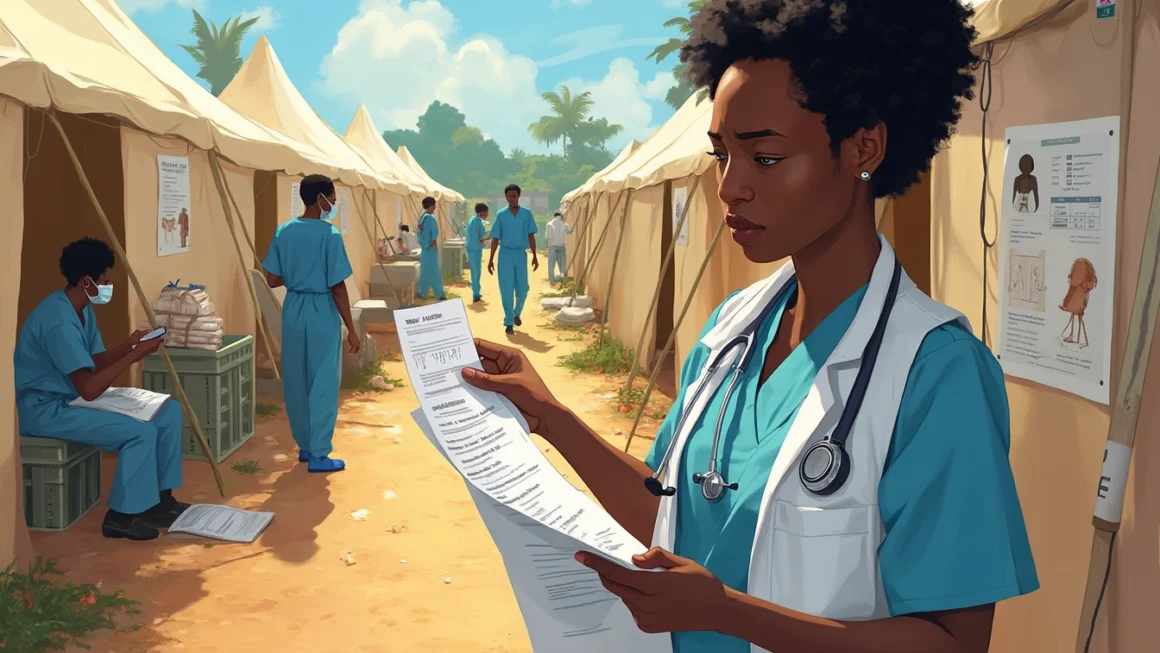Understanding the Mpox Outbreak in Africa: Separating Fact from Fiction
Table of Contents
The recent outbreak of a mysterious disease in the Democratic Republic of Congo (DRC) has sparked concern and speculation within the global health community. Initially thought to be a new strain of mpox (formerly known as monkeypox), further investigation has revealed a more complex situation. Let’s delve into the details of this health crisis and explore what experts have discovered.
The Initial Confusion: Mpox or Malaria?
When reports of a disease causing fever and skin rashes emerged from the DRC, many feared it was a new outbreak of mpox. However, as health officials conducted thorough investigations, they found that the situation was not as straightforward as initially believed.
Dr. Rosamund Lewis, the World Health Organization’s (WHO) technical lead for mpox, clarified that the outbreak is primarily attributed to malaria, not mpox. This revelation highlights the importance of careful diagnosis and the challenges faced in areas with limited healthcare resources.
The Reality of the Outbreak
According to the latest reports:
- Over 1,000 cases have been recorded in DRC’s Equateur province
- At least 205 deaths have been reported
- The majority of cases are children under 5 years old
These statistics underscore the severity of the situation and the urgent need for effective interventions.
The Role of Malaria
Malaria, a parasitic disease transmitted by mosquitoes, is endemic in many parts of Africa, including the DRC. The symptoms of malaria can sometimes mimic those of other diseases, leading to initial confusion in diagnosis. In this case, the high fever and skin manifestations led some to suspect mpox initially.
However, as Dr. Lewis pointed out, further testing revealed that malaria was the primary culprit behind the outbreak. This finding emphasizes the critical importance of accurate diagnostic tools and procedures in managing public health crises.
The Ongoing Mpox Situation
While the current outbreak in DRC is primarily malaria-related, it’s important to note that mpox remains a concern in various parts of Africa. The WHO continues to monitor the situation closely, as mpox has shown the potential for international spread, as evidenced by the global outbreak in 2022.
Mpox, caused by the mpox virus, typically presents with fever, rash, and swollen lymph nodes. While it can be severe, especially in children and immunocompromised individuals, it is generally less contagious and less severe than smallpox.
Challenges in Disease Management
The situation in DRC highlights several challenges in managing disease outbreaks in resource-limited settings:
- Limited diagnostic capabilities: Accurate and timely diagnosis is crucial but often challenging in remote areas.
- Overlapping symptoms: Many diseases present with similar initial symptoms, making early differentiation difficult.
- Healthcare infrastructure: Limited access to healthcare facilities and trained personnel can hinder effective response.
- Public health communication: Conveying accurate information to the public and combating misinformation is crucial but challenging.
The Way Forward
Addressing this outbreak and preventing future ones requires a multi-faceted approach:
- Strengthening healthcare systems: Investing in infrastructure, training, and resources is crucial for timely and accurate disease management.
- Improved surveillance: Enhancing disease monitoring systems can help in early detection and response.
- Research and development: Continued research into diseases prevalent in the region is essential for better prevention and treatment strategies.
- International cooperation: Collaborative efforts between countries and international health organizations are vital for effective disease control.
As we navigate through these health challenges, it’s crucial to stay informed and support global health initiatives. For those interested in learning more about how technology can aid in health crisis management, exploring automation tools can provide insights into streamlining health data collection and analysis processes.
Conclusion
The recent outbreak in the DRC serves as a reminder of the complex nature of disease management in challenging environments. While initially feared to be mpox, the revelation that malaria is the primary cause underscores the need for careful investigation and accurate diagnosis.
As the global community continues to face health challenges, it’s crucial to support efforts in improving healthcare infrastructure, enhancing diagnostic capabilities, and fostering international cooperation. By working together and leveraging both traditional and innovative approaches, we can better respond to and prevent future health crises.




